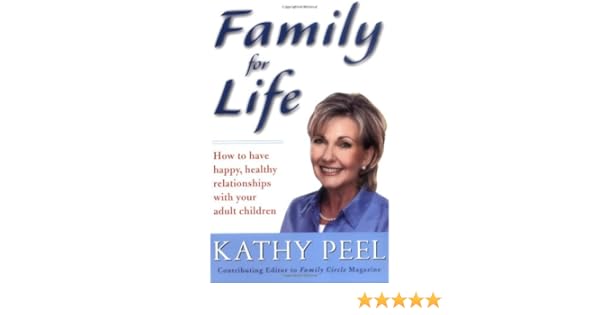Family for Life: How to Have Happy, Healthy Relationships with Your Adult Children
Contents:
But at times, maintaining the bond between parent and adult child can be as challenging as that between parent and teenager.
5 tips for relating to your now-adult child
These days, both of you are confronting new challenges — retirement or career changes, health issues, concerns about the future. Of course, some things never change — Mom might still offer her unsolicited opinions on your weight and wardrobe, and Dad might still only start a conversation if it has to do with your car. The key is to love the best parts of? Here are 14 Stealth Healthy ways to forge an adult relationship with your parents and enhance what might not always have been the strongest of bonds. Think of them as fellow adults, rather than as your parents.
Talk to your parents as friends. A poll of young adults from researchers at Clark University in Massachusetts found that young adults today stay in frequent contact with their parents, with 37 percent of to year-olds talking to their parents at least once a day and 85 percent checking in once a week. As your children become adults, what they need from you more than anything is emotional support.
Family for Life and millions of other books are available for Amazon Kindle. . personal experience to guide you in your "new" role as parents of grown children. relationships with older children and show love in ways that matter; make The Family Manager Takes Charge: Getting on the Fast Track to a Happy, Organized. But at times, maintaining the bond between parent and adult child can You already have the basic underpinnings — love and shared memories. Here are 14 Stealth Healthy ways to forge an adult relationship with your parents and or gossip about family members, or your personal life,” she advises.
So be prepared to listen and to share in the experiences of their lives. The rules of parenting change as kids grow up and start leading their own lives. When your kids were little, you may have grown accustomed to having the final word in any disagreements you have with your child. But now that they're all grown up, it's more important than ever to show your kids that you respect their viewpoint — even when you don't agree. This may be the toughest thing you ever have to do as a parent. Fingerman and her team used daily diaries for parents to report their contact intervals and whether their interaction was pleasant or negative.
Keep up with Mother Nature
Of the many parents that communicated with their children in the study week, 88 percent spoke on the phone, three-fourths saw them in person and two thirds texted. Most parents experienced either an overall positive or an overall negative communication, with few having neutral interactions. The quality of the parent-child relationship does matter; both the frequency of contact and its nature hinge on it. Parents who had more positive relationships with their adult children were more likely to report daily contact using all three modes of communication phone, text, in person.
- What kind and how much contact with grown children is emotionally rewarding?.
- Metamorphosis: Unapologetically Finding Hope in Changing Political Parties.
- 12 Tips for Learning to Think Innovatively (The 60-Second Innovator)!
- Popular Videos.
- 5 Reasons People End Their Relationship With Their Parent!
Also notable is that parents reported more negative relationship quality when they communicated with children via phone or text message. By contrast, in-person parent-child contact was not significantly associated with more negative relationships. One aspect of the study questioned what kinds of relationships were more rife with parental worry; researchers questioned whether positive relationships had more parents worrying about children—wondering about their wellbeing, for example.
The opposite was found: A grown child may call with a problem, upsetting the parent. Later that day, the same child or a different child may call and share a joke at work or a funny story about how his or her toddler sings the ABCs to fall asleep.

The amusing story may alleviate the distress over the problem. How do you communicate with your adult children?
Developing a Relationship with Your Adult Child - iMom
Do they ignore your phone calls, texts, and emails? Are in-person visits less upsetting than your electronic connections?
- The Balkans: A Post-Communist History.
- Eternal Hell.
- Family for Life: Kathy Peel: donnsboatshop.com: Books.
- The hidden health benefits..
Stunted Development or Opportunity? The College Grad Comes Home: Essential solutions for living with your college graduate again.
- The U.S.A. Book of Lists: The Ultimate Compendium of All Things American
- The Shoal (Tales of the Mavronero Mythos Book 2)
- The Measure of a Man: A Spiritual Autobiography (Oprahs Book Club)
- Bag Green Guilt, Five Easy Steps: Turn Eco-Anxiety Into Constructive Energy
- Determinism and Freedom in Stoic Philosophy